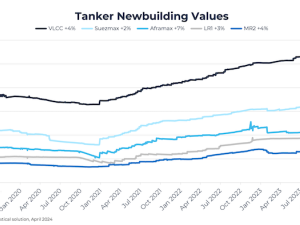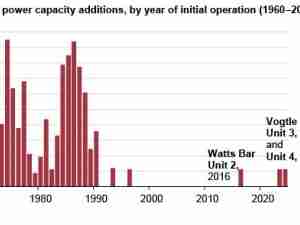President Joe Biden’s move to pause liquefied natural gas export approvals won praise from progressives and climate activists - but some moderate Democrats from gas producing states are saying not so fast.
A group of 10 Democratic House lawmakers from states including Texas, Alaska and California sent a letter to Biden asking him to “refocus” his policies on LNG exports.
“The United States must continue to lead the way in ensuring the security of our own energy supplies and those of our allies,” the lawmakers, led by Texas Representative Marc Veasey, wrote in the letter made public Friday. “Every molecule of US LNG exported helps limit the growth of global emissions and provides energy security around the world.”
Senate Democrats from the battle-ground state of Pennsylvania, the second-largest natural gas producing state in the US, were more pointed in their criticism.
“While the immediate impacts on Pennsylvania remain to be seen, we have concerns about the long-term impacts that this pause will have on the thousands of jobs in Pennsylvania’s natural gas industry,” Senators Bob Casey and John Fetterman said in a joint statement Thursday. “If this decision puts Pennsylvania energy jobs at risk, we will push the Biden administration to reverse this decision.”
The White House didn’t immediately respond to a request for comment.
The Biden administration announced it was pausing the approval of licenses to export LNG while it scrutinized the affect of the shipments on climate change and other factors amid a campaign by environmentalists and others who have come to view the projects as a symbol of the president’s green credentials. Opponents of the massive export terminals, which include environmentalist Bill McKibben, who successfully led a push to block the Keystone XL pipeline a decade ago, argue the infrastructure will lock in the use of fossil fuels for decades to come.
“We don’t have time to keep pretending that natural gas is a climate solution,” Representative Jared Huffman, a California Democrat, said during a Capitol Hill press conference where frontline environmental leaders declared victory in securing the pause. “We don’t have time to keep pretending that LNG is clean energy.”
But critics of the moratorium, which threatens to disrupt billions of dollars in LNG export projects from companies such as Commonwealth LNG and Energy Transfer LP, have dismissed it as a political ploy to help Biden get the votes of young progressive voters angered by the president’s decision to approve the Willow drilling project in Alaska as well as his support for Israel.
It also puts lawmakers from natural gas producing states in a politically tough position.
Senator John Hickenlooper, a Colorado Democrat who once drank fracking fluid to vouch for the safety of the drilling technique, said he needed more information before deciding if he supported a move being pushed by Republicans to strip the Energy Department’s role in approving LNG export licenses entirely.
“I’d like to get the facts of the issue before I start making decisions on whose authority should be expanded or limited,” Hickenlooper said in an interview.
Biden’s LNG export pause will be scrutinized at a pair of House and Senate hearings next week, including one led by Senator Joe Manchin, the West Virginia Democrat who hasn’t been shy about opposing Biden administration policies that hurt his state’s abundant supply of both coal and natural gas.
But Manchin, who has expressed concern about the impact of exporting LNG on domestic prices in the past, issued a statement following the White House’s LNG moratorium announcement that stopped short of saying he opposed the move.
“I have always said that our first concern must be protecting American consumers and growing American businesses, and we need a safety valve in place to ensure Americans aren’t unnecessarily stuck paying a premium for the abundant resources we’re blessed to have,” Manchin said. “But as the superpower of the world, we also have a responsibility to our allies and trading partners who, in our absence, may have no other choice but to turn to countries that don’t share our values.”








_-_28de80_-_58820516bd428ab3fd376933932d068c43db9a4a_lqip.jpg)


